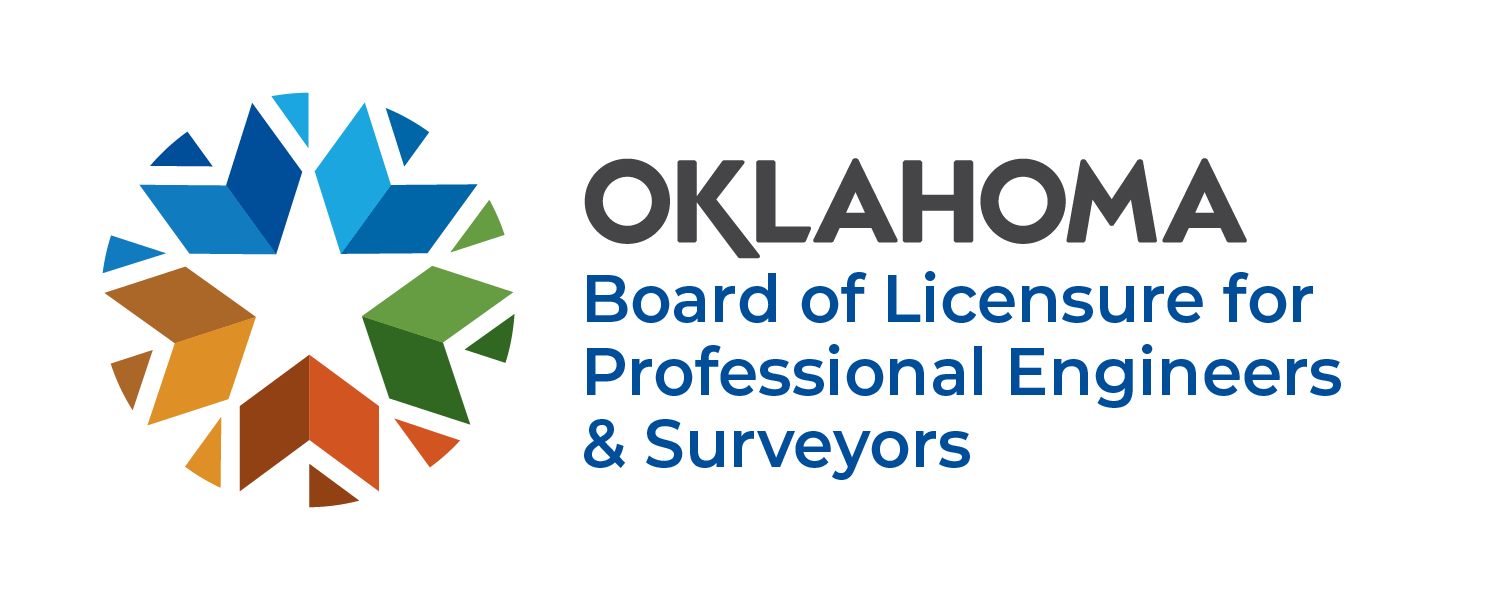Your P.E. Licensure - Your Future
Why?
One of the most important decisions you can make in your career is to earn your professional engineer's licensure. By obtaining the required college education, engineering experience, and your professional engineering licensure, you will be able to lawfully perform a broad scope of engineering services.
- Consulting: Only a P.E. may prepare, sign and seal engineering plans and specifications for submission to a public authority for approval.
- Promotions: Many government and industry employers require licensure for senior engineering positions.
- Opportunity: Employers want engineers who show strong commitment to the future by becoming licensed.
- Security: As laws change and international agreements are adopted, a P.E. licensure may become a necessity. Your status as a licensed P.E. will provide you with a maximum level of professional flexibility while earning you the
How?
Follow These Steps to Licensure:
1. Engineering Degree:
Most state boards, including Oklahoma's, require a bachelor's degree from a four-year program that has been accredited by the Engineering Accreditation Commission (EAC) of the Accreditation Board for Engineering and Technology (ABET). In Oklahoma, other "related science" degrees may be approved.
2. Pass the Fundamentals of Engineering (FE) Examination:
All FE examinations are administered via computer based testing and you apply directly with the National Council of Examiners for Engineering and Surveying (NCEES) to take the examination. Please go to http://ncees.org/engineering/fe/ for the latest information and to register for the exam. We strongly encourage all engineering students to take the FE examination in their last two semesters of school as the pass rate is much higher for those that take it while they are in school. Once you have passed the FE examination and graduate, you may apply with the Board to be certified as an Engineer Intern.Most state boards, including Oklahoma's, require a bachelor's degree from a four-year program that has been accredited by the Engineering Accreditation Commission (EAC) of the Accreditation Board for Engineering and Technology (ABET). In Oklahoma, other "related science" degrees may be approved.
3. Engineering Experience:
You must complete four years of progressive engineering work experience (or, six years for an approved related science degree) before applying for licensure as a Professional Engineer. This work experience must be approved and verifiable by the Board.
4. Pass the PE Examination:
In most cases, applicants take the Principles and Practice of Engineering Examination after completing the required engineering experience. Applicants, however, may apply to take the PE exam prior to obtaining the required number of years experience. Once the applicant has passed the PE exam and obtained the required experience for licensure, they should then complete the application process to become licensed as a Professional Engineer.Most state boards, including Oklahoma's, require a bachelor's degree from a four-year program that has been accredited by the Engineering Accreditation Commission (EAC) of the Accreditation Board for Engineering and Technology (ABET). In Oklahoma, other "related science" degrees may be approved.
When?
Start on the path to licensure now!


